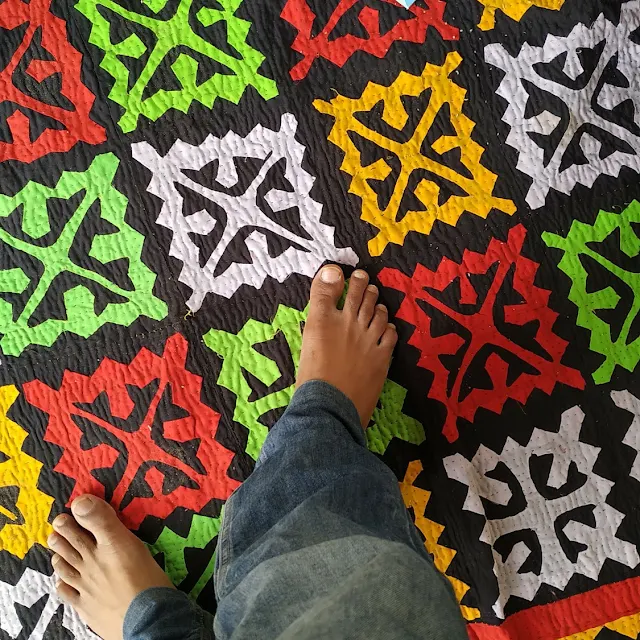Shahnawaz Chachar conducted 25 two-day training sessions in Khairpur, Sindh, as part of the DAI-funded “Village Aman Otaq” peacebuilding project implemented by Samaj Development Foundation during May and June 2019. This crucial project focused on promoting peace and social cohesion within communities often affected by conflict. The training curriculum equipped participants with essential conflict resolution skills, effective communication techniques for de-escalation and dialogue, and practical community mobilization strategies to foster peace within conflict-prone areas. A key component of the project involved forming, organizing, and training village peace committees on basic peacebuilding activities and empowering them to engage in ongoing peacebuilding initiatives within their communities. Shahnawaz utilized a participatory training approach, actively engaging participants through group work, role-playing scenarios, and interactive discussions to maximize learning and ownership. The project specifically targeted remote and vulnerable areas of Khairpur district, where tribal conflicts and incidents of electoral violence had occurred, demonstrating a commitment to reaching those most in need of peacebuilding support.
Tag: Sindh
-
Training Journalists and Citizens on Digital Media and Citizen Journalism in Pakistan (2018-2023)
Shahnawaz Chachar facilitated multipl training sessions for students, active citizens, and journalists in Sindh, Balochistan, and Islamabad from 2018 to 2023, focusing on digital media and citizen journalism and storytelling. These comprehensive trainings enhanced participants’ skills and knowledge in critical areas such as content creation techniques for various digital platforms (text, video, audio), ethical considerations in online reporting and information sharing, and best practices for disseminating information responsibly and effectively. He employed interactive andragogy methods like hands-on exercises, real-world case studies, and engaging group discussions to maximize participant engagement and ensure effective learning transfer. This training initiative aimed to empower journalists and citizens to leverage digital platforms for impactful reporting, advocacy campaigns, and strengthened community engagement, ultimately promoting a more informed citizenry and fostering responsible journalism practices in Pakistan. The training also covered digital security and verification techniques to combat misinformation and disinformation.
-
Organizational Capacity Building Training for Grass Root COs/NGOs in Sindh
Shahnawaz Chachar facilitated more than 10 training sessions and workshops focused on organizational capacity building for grassroots community-based organizations (CBOs) and non-governmental organizations (NGOs) operating in various districts of Sindh, Pakistan. These training initiatives aimed to enhance the organizational capabilities of these grassroots organizations, enabling them to design, implement, and manage effective programs and services that address the needs of their target communities. The workshops covered a wide range of essential topics, including project management principles and practices, sound financial management systems, effective monitoring and evaluation methodologies, and best practices in human resources management. Through these interactive workshops, participants learned practical strategies for developing sustainable and impactful programs, increasing community engagement and participation in their initiatives, and building strong partnerships with other organizations and stakeholders. The overall goal of these capacity building efforts was to empower local organizations to become more effective agents of community development.
-
Flood Emergency Relief Projects: Supporting Livelihood and WASH in Sindh
As head of operations for Goth Seengar Foundation, Shahnawaz Chachar led Livelihood Cash for Work and WASH projects in post-flood Sindh. Funded by Catholic Relief Services (CRS), the projects supported over 30,000 beneficiaries. GSF, with CRS support, provided seed, fertilizer, and PKR 30,000 for 32,000 families in Jacobabad. He led teams, managed interventions (baseline studies, beneficiary assessments, mega distributions, awareness sessions), managed budget, timeline, and resources, and communicated with the donor. (Location: Sindh province, Pakistan; Dates: Sep 2010 — Jun 2011)
-
FAFEN’s Democratic Governance Program: Mobilizing Voters and Observing Elections in Sindh
Shahnawaz Chachar managed FAFEN’s Democratic Governance Program as program manager, a voter mobilization and election observation project implemented by Cavish Development Foundation. Funded by FAFEN (Free and Fair Elections Network), the project involved post-election activities in seven constituencies and five districts of Sindh. He managed activities, budget, timeline, and resources, coordinated with partner organizations, and communicated with the donor. (Location: Sindh province, Pakistan; Dates: Jul 2008 — Aug 2010)
-
Community Mobilization for TB DOTS Diagnosis and Treatment in Kambar Shahdadkot
Shahnawaz Chachar mobilized communities, conducted diagnosis camps, trained staff, reported TB cases, and coordinated with stakeholders for Mercy Corps Pakistan’s TB DOTS treatment project in Kambar Shahdadkot. Funded by the European Commission, the project provided TB diagnosis, treatment, and prevention. (Location: Kambar Shahdadkot district, Pakistan; Dates: Jan 2005 — Mar 2006)
-
Preventing and Treating HIV/AIDS and Drug Use in Larkana
Shahnawaz Chachar coordinated a HIV/AIDS prevention and drug harm reduction project for CDNF in Larkana. Leading a team of 10, he provided awareness, testing, counseling, and treatment. Funded by UNODC and SACP/NACP, the project addressed HIV/AIDS and drug use. He managed activities, budget, timeline, and resources, and coordinated with stakeholders. (Location: Larkana district, Pakistan; Dates: Jun 2002 — Nov 2004)
-

Ralli whispers, stories untold…
Ralli whispers, stories untold, A legacy in threads of gold.
Sun-kissed hands, a needle’s song,Desert dreams in fabric strong.
Sindh’s embrace, a vibrant hue,Warming nights, skies vast and blue.Her spirit stitched, a silent pride,Ralli quilts, where cultures hide.
Each stitch a thread, a future sewn,Hope’s promise, brightly, gently shown.
Centuries old, her skills remain,Ralli’s magic, whispered in the grain.
May 05, 2021.
Shahnawaz Chachar